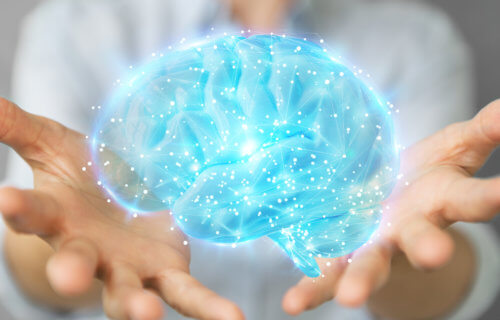TRONDHEIM, Norway — What’s the best way to maintain peak brain health as we age? There are countless studies detailing ways to prevent cognitive decline, so scientists in Norway sought to simplify the science of managing strong brain health to three recommendations.
“The keys to our nervous system are the gray and white matter,” says Hermundur Sigmundsson, a professor at the Norwegian University of Science and Technology’s (NTNU) Department of Psychology, in a university release.
Gray matter is made up of nerve cells (neurons) and dendrites, while white matter works to facilitate contact between the cells (myelinated axons) and contributes to the transmission speed and distribution of the signals. If one can keep their white and gray matter “in shape,” cognition, thinking skills, and memory should function smoothly as well.
This report is something of a summation covering modern science’s current understanding of how best to cultivate robust brain health. The team at NTNU cite 101 references to prior articles in this latest theoretical perspective paper.
“Three factors stand out if you want to keep your brain at its best,” Prof. Sigmundsson adds.
The three identified keys to strong brain health are:
- Physical exercise
- Social activity
- Strong, passionate interests and hobbies
Simple, right? Let’s break down each factor a bit further.
Physical Activity
It’s common knowledge that spending all day on the couch isn’t healthy for the body, but physical activity is also key to brain health. “An active lifestyle helps to develop the central nervous system and to counteract the aging of the brain,” according to study authors.
Researchers add that consistency is essential. Do your best to get in at least a little movement each and every day. Even if you work a sedentary job that requires lots of sitting, get moving every hour or so for just a few minutes at the very least.
Social Activity
Some people are naturally more social than others, but researchers stress that no one is an island. Even if you prefer a quiet night in to attending a party, make an effort to stay in touch with the people who matter to you. Our brains thrive on social interactions and connections.
“Relationships with other people, and interacting with them, contribute to a number of complex biological factors that can prevent the brain from slowing down,” Prof. Sigmundsson explains.
Keep Learning & Stay Passionate
Just like bicep curls help us build muscle, keeping the brain active promotes strong lifelong cognition. Consider taking up a new hobby, or learning a new skill. Perhaps most importantly, though, don’t force it; find something you’re actually passionate about. It’s never too late in life to learn something new!
“Passion, or having a strong interest in something, can be the decisive, driving factor that leads us to learn new things. Over time, this impacts the development and maintenance of our neural networks,” Prof. Sigmundsson says.
Cognitive conclusion for best brain health
All in all, study authors say much of their advice can be summed up by the old saying, “Use it or lose it.” Our brains are incredible machines of sorts, but just like any other tool, they’ll start to wither away if left inactive for too long.
“Brain development is closely linked to lifestyle. Physical exercise, relationships and passion help to develop and maintain the basic structures of our brain as we get older,” Prof. Sigmundsson concludes.
The study is published in Brain Sciences.

What about diet? Doesn’t your choice of food matter, too?
Darn right it matters! I cannot believe they left it off their list.
Brain ‘health’ may be (it is a receiver, processor and sender) , but eternal life hinges on correctly interpreted bible-spiritual wisdom, allegory contemplated in the MIND.
Getting your ‘good thing’s too
Eternal life my ass!
It is interesting to know that the brain is a muscle that breeds movement in order to function. Physicians need to stress that more. Most people think the brain needs to rest most of the time.